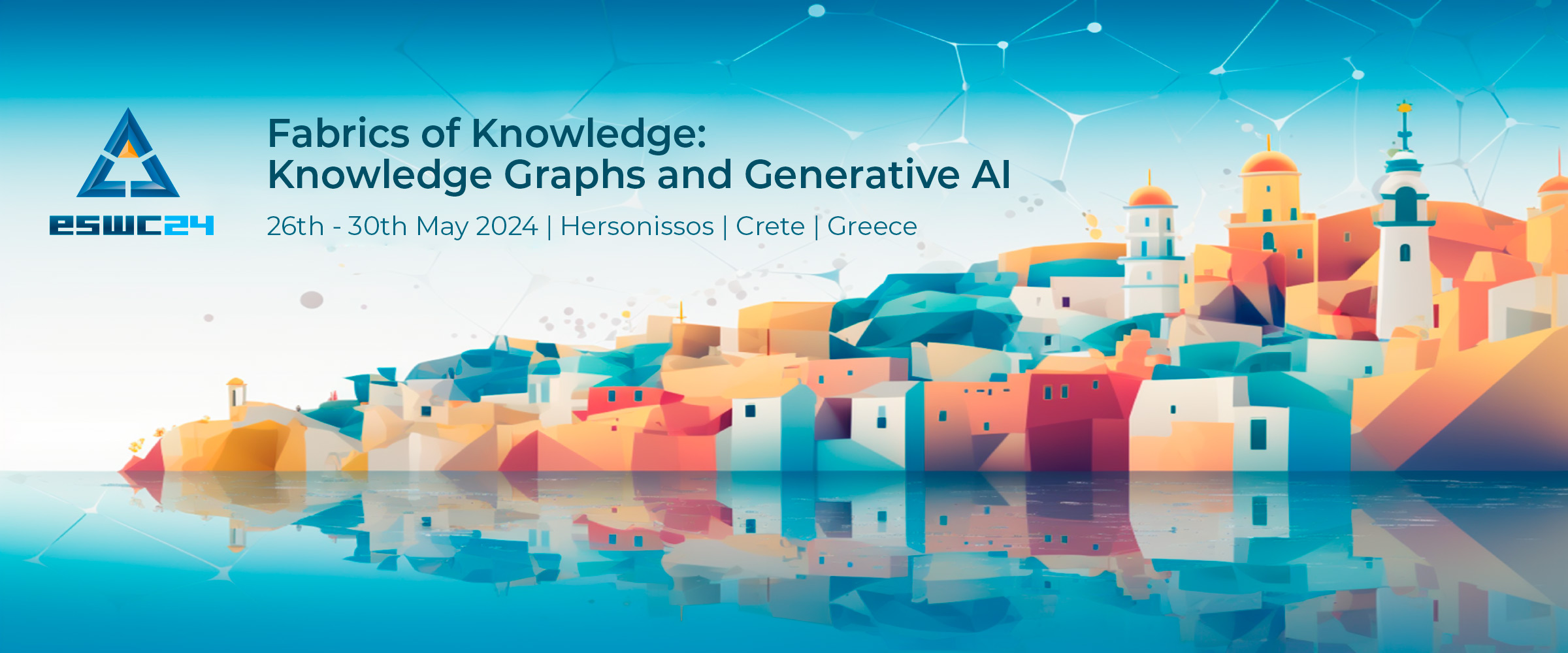The recordings of all ESWC 2024 talks are now available at https://videolectures.net/eswc2024_heraklion/ Enjoy!
Registration desk opening hours
The registration desk will be open for check-ins on Sunday and Tuesday from 8am. Please try to come by before 8.45am to avoid congestion.
We’re looking forward to welcoming you to ESWC 2024!
Conference Proceedings published
The ESWC 2024 Conference Proceedings are now available.
